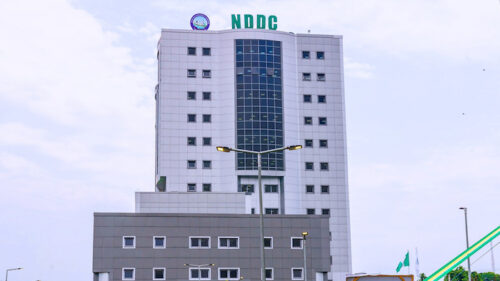
The history of governance reveals that laws can be either just or unjust. Just laws are those that align with moral principles and elevate human dignity, while unjust laws are disconnected from moral standards and harm human welfare. A similar distinction can be made when considering fiscal policies, particularly national budgets. Some budgets are crafted with the welfare of citizens in mind, aiming to improve living conditions, while others consolidate fiscal power at the upper echelons of government, leaving lower levels of society impoverished and disempowered.
An exemplary budget that aligns with moral values and holds potential for transforming lives, especially in the Niger Delta region, is the Niger Delta Development Commission’s (NDDC) N1.91 trillion budget for 2024. Recently presented to the Senate Committee on Niger Delta Affairs, this budget focuses on several key priorities, including security, job creation, youth and women empowerment, education, social welfare, and infrastructure development. The NDDC’s management emphasized the moral and transformative potential of the budget, describing it as a “Budget of Renewed Hope,” designed not merely for transactional purposes but for long-term, people-centered transformation.
The budget, which the Senate approved after careful review, outlines revenue sources such as N12 billion from the previous fiscal year, N170 billion in Federal Government arrears, N324 billion from the Federal Government’s contribution, N375 billion from oil companies, N25 billion from the ecology fund, and N5 billion in internally generated revenue. It also plans for loans of up to N1 trillion to fund ongoing legacy projects. Additionally, the budget allocates funds for personnel costs, overhead costs, and internal capital, with the largest portion directed toward funding major infrastructure projects.
One of the key goals of the 2024 NDDC budget is to complete more than 200 kilometers of roads by the end of the year, signaling a commitment to improving infrastructure in the region. While acknowledging resource constraints, NDDC officials, including Dr. Ogbuku, emphasized the importance of focusing on the needs of the majority.
The leadership of the NDDC has expressed optimism that the approved budget marks a pivotal moment for the region. With this funding, the commission is poised to bring about significant infrastructure development, transitioning the Niger Delta from a state of infrastructural neglect to one of sustained growth. Furthermore, Dr. Ogbuku highlighted the commission’s strong revenue performance, with N683.2 billion received by April 2024, about 78% of the target for the year.
A noteworthy aspect of the NDDC’s approach to the 2024 budget is its focus on leveraging public-private partnerships (PPP) to drive sustainable development in the region. By collaborating with the Niger Delta Chamber of Commerce and other stakeholders, the NDDC aims to enhance regional growth and address critical infrastructure needs. This PPP model is also extended to youth engagement initiatives, aiming to reduce crime and economic sabotage by creating job opportunities and empowering the region’s youth.
The NDDC’s plan to secure N1 trillion in loans from commercial and development banks has sparked some public debate. However, the commission has clarified that these funds will be used exclusively for completing 1,006 ongoing legacy projects across the Niger Delta, including roads, bridges, electricity, schools, hospitals, and other critical infrastructure. The NDDC has committed to using these funds strategically, ensuring that the projects are completed efficiently, despite the inflationary pressures that could delay progress.
In conclusion, the recently approved 2024 NDDC budget represents a significant step forward for the region. With a strong focus on infrastructure, youth empowerment, and sustainable development, this budget has the potential to uplift the Niger Delta and set the stage for future growth and transformation. The leadership of the NDDC is poised to make substantial strides toward building a stronger, more resilient region.


